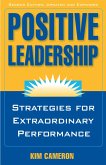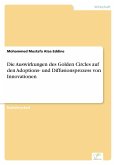360 degree feedback is widely used by employing organisations but views of how successful it is vary from individual to individual and from organisation to organisation. Successful experiences of 360 degree feedback can have a powerful effect on performance, retention and development. However, it can be a 'loose cannon'. When 360 degree feedback is unsuccessful within organisations there appears to be a damaging effect on employee engagement factors like motivation, organisational commitment and morale. It is therefore important to gain a better understanding of what differentiates more successful experiences of 360 degree feedback from less successful ones. This book seeks to answer the question: 'what makes the difference between 360 degree feedback experiences perceived by participants as successful and those that are not?'. The effects of trust, fairness, support, and relationships are combined to form a practical and predictive model.
Bitte wählen Sie Ihr Anliegen aus.
Rechnungen
Retourenschein anfordern
Bestellstatus
Storno








